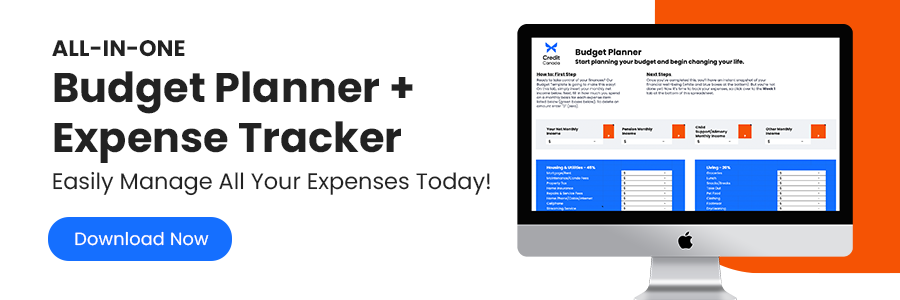
Why Was My Debt Consolidation Loan Denied?
Denial is not just a river in Egypt! It’s also a very common outcome for many Canadians in search of a debt consolidation loan. Unfortunately for many, their debt consolidation loan application will be denied. Here are the top six reasons why.
People trying to obtain a debt consolidation loan are often looking to roll high-interest debts, such as credit card bills and payday loans, into a single, lower-interest monthly payment in order to reduce their debt and pay it off faster. Unfortunately for many, their debt consolidation loan application will be denied for any number of reasons.
Top 6 Reasons for Debt Consolidation Loan Denial
Nobody likes to be told “no” but it's a reality for many people applying for a debt consolidation loan in Canada. While it would be nice if lenders told you the reason for denying your loan application, many aren’t very forthcoming. So, in no particular order, here’s a look at the top six reasons why a debt consolidation loan application might be turned down.
1. Bad Credit
Credit ratings and credit scores are a gauge lenders use to determine the likelihood that you’ll make good on your payments and not default on your loan (in other words, pay it back in a timely manner). While they’ll usually accept a certain amount of risk, if your score is too low due to bad credit (i.e., late payments, accounts in collections, foreclosures and repossessions, consumer proposals, bankruptcies, etc.) they will most likely deny your application. And if by chance they still offer you a loan, it’s almost a certainty that it will come at a very high cost in the form of very high interest, thus defeating the purpose of obtaining the loan in the first place.
Wondering how to get a debt consolidation loan if you have bad credit? Start by learning how to repair your credit score and check out our blog 6 Steps You Can Take to Restore Your Credit. A word of caution, though: If you do have bad credit, beware of the “no credit check" loan. These lenders prey on people in desperate situations, and so they will often offer a loan but at an interest rate of 35% or higher, in some cases charging the interest for the entire length of the loan all upfront. That’s not just a bad deal—it can be downright scary!
2. No Credit
Some people can get themselves deep into debt before they’ve even had a chance to build up a lengthy and respectable credit history. Although they might not necessarily have bad credit, having very little credit history can make a lender uneasy, too. Lenders use credit history as a barometer to make a judgment call as to whether or not you’ll keep up with loan payments as agreed; without it, they have no way of knowing if you’re trustworthy enough to grant you a loan, including one for credit card debt consolidation, and so they are likely to turn you down.
If you’re wondering how to get a loan with no credit, or your options for building up your credit so you can get a loan in the future, you should speak with an unbiased professional first, such as a certified Credit Counsellor from a not-for-profit credit counselling agency like Credit Canada. It’s important to know the risks before taking on high-interest loans and credit products. And if you want to learn about the risks of being a cosigner for a loan, check out our blog on inheriting debt.
3. Low Income
Even if you have a good credit score, lenders want to be sure you can afford their loan, and so they’ll take a look at your income level in relation to your debt. While being unemployed certainly raises a red flag, it’s not always a deal-breaker; you may still be eligible for a loan with no job as income can come from a variety of different sources other than employment, such as rental income, a pension, disability benefits, spousal support, and more. If your total income is deemed too low and you’re denied, you may still be able to acquire a smaller loan; but if it’s not enough to wrap up all your unsecured debts into one, it may defeat the purpose entirely.
4. High Debt
Not everyone applying for a debt consolidation loan is having trouble paying off their debt, even if it is a lot; sometimes they can afford to make the payments but they just want to secure a lower interest rate. Oftentimes, however, their current debt level is so high that it’s unmanageable based on their income, so they will apply for a debt consolidation loan. If that’s the case, lenders want to be reasonably sure the borrower is able to pay the loan back within a reasonable time frame, so they’ll take a look at their debt-to-income ratio (DTI).
DTI calculation is simple: Add up all of your monthly debt payments (including mortgage payments, rent, minimum payments on credit cards, etc.) and then divide the total by your pre-tax monthly income. Most lenders put the maximum DTI at around 46%, meaning that your total monthly debt payments cannot exceed that percentage of your monthly income. (FYI, the lower the percentage is, the better the interest rate is likely to be on a loan you do qualify for.)
5. Too Many Inquiries
Another item on your credit report that lenders will look at is the number of credit inquiries or “hard inquiries” you’ve recently had. A hard inquiry is any time a lender takes a look at your credit rating, credit history and/or credit score to decide whether or not to grant you a loan or credit (that includes retail credit cards, too). Many people, prior to attempting to get a debt consolidation loan, will try to obtain more credit cards, which can be a red flag to some lenders. Trying to obtain additional credit within a short period of time can not only lower your credit score, but it can also be an indication that you’re running into financial trouble and trying to make ends meet by relying on credit. Also, if the inquiries were denied, the lender will see that other companies have deemed you unfit for additional credit, so they will be less likely to take on that risk themselves.
6. No Collateral
When applying for a debt consolidation loan with a low income or low credit score, lenders may ask for collateral. Unlike unsecured debt consolidation loans where lenders have no other recourse but to attempt to collect through the courts should you stop making payments, a secured debt consolidation loan gives them the peace of mind that they can recover their funds should you default on the loan. Collateral may include a home, car, stocks, etc. Of course, if you think you might not be able to make good on the commitment, risking your home or other assets is a scary option that deserves a lot (and we mean A LOT) of thought and expert advice.
What To Do If Your Debt Consolidation Loan Is Denied
Being denied a debt consolidation loan can be frustrating, but sometimes it’s for the best. Oftentimes, people find themselves worse off after obtaining a debt consolidation loan.
With most debt consolidation loans, after a person’s unsecured debts are all paid off using the funds from the loan, their credit card debts are wiped clean and now all have zero balances. And so, people will start to use their credit cards again, meaning they will now have an additional monthly payment to take care of on top of the monthly payment they are making towards the debt consolidation loan, which in most cases, is quite large. Many people dig themselves into a deeper financial hole by getting a debt consolidation loan to pay off all their unsecured debts, and then continuing to use their credit cards.
The good news is there are other options for consolidating debt, including debt consolidation programs or in some cases, balance transfer offers (although balance transfers have their risks, too). And sometimes simply looking at your spending habits differently can also offer a new perspective. If you’re not already tracking your expenses and following a budget, you can download our free Budget Planner + Expense Tracker to get started.
If you’ve been denied a loan and need help with debt consolidation, or if you would like to know all of your debt relief options and get expert advice on how best to move forward, you can speak with one of our certified Credit Counsellors (all of our counselling is free!). They’ll be happy to help you explore different options, including a debt consolidation program. Don’t hesitate to give us a call at 1.800.267.2272—we’re happy to help!
Frequently Asked Questions
Have questions? We are here to help
A Debt Consolidation Program (DCP) is an arrangement made between your creditors and a non-profit credit counselling agency. Working with a reputable, non-profit credit counselling agency means a certified Credit Counsellor will negotiate with your creditors on your behalf to drop the interest on your unsecured debts, while also rounding up all your unsecured debts into a single, lower monthly payment. In Canada’s provinces, such as Ontario, these debt payment programs lead to faster debt relief!
Yes, you can sign up for a DCP even if you have bad credit. Your credit score will not impact your ability to get debt help through a DCP. Bad credit can, however, impact your ability to get a debt consolidation loan.
Most people entering a DCP already have a low credit score. While a DCP could lower your credit score at first, in the long run, if you keep up with the program and make your monthly payments on time as agreed, your credit score will eventually improve.
Anyone who signs up for a DCP must sign an agreement; however, it's completely voluntary and any time a client wants to leave the Program they can. Once a client has left the Program, they will have to deal with their creditors and collectors directly, and if their Counsellor negotiated interest relief and lower monthly payments, in most cases, these would no longer be an option for the client.

